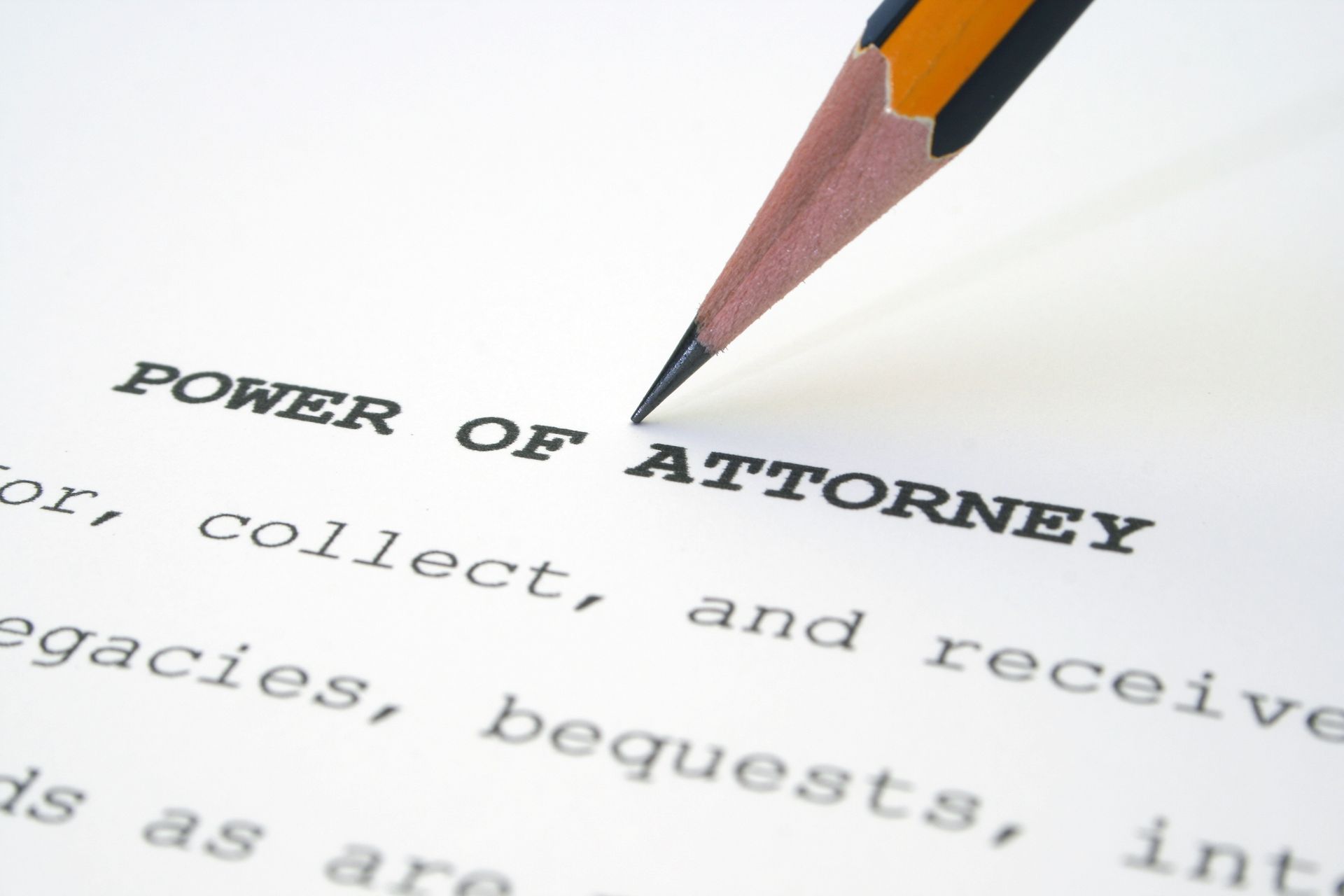Contact Us
Phone: 202-792-5850
Location
1218 11th St. N.W.
Suite 100
Washington, DC 20001
Hours
- Mon - Fri
- -
- Sat - Sun
- Closed
Our Legal Blog
Your Resource For Legal Information

18 Feb, 2024
Starting a business is an exciting venture - you have a great idea, you're passionate about it, and you're ready to take the world by storm. However, before you can start marketing your product or service, there's some legal groundwork that needs to be laid. This is where a business formation attorney comes in. In this blog post, we'll discuss why every Washington DC business needs a business formation attorney and what services they offer to help ensure your success. Legal Expertise The first and most important reason to hire a business formation attorney is for their legal expertise. They have the knowledge and experience necessary to navigate the complex legal landscape of starting and running a business. This includes understanding the various laws and regulations that apply to your specific industry as well as helping you choose the right legal structure for your company. Protect Your Assets Another benefit of hiring a business formation attorney is that they can help protect your personal assets from any liabilities that may arise as a result of your business operations. This is especially important if you're operating as a sole proprietorship or partnership, where your personal finances are tied directly to the success or failure of your business. Drafting Legal Documents A business formation attorney can also help with drafting essential legal documents such as contracts, leases, and employee agreements. These documents provide clarity and protection for all parties involved in your business dealings and can help prevent costly disputes down the line. Regulatory Compliance Regulatory compliance is another area where a business formation attorney can be invaluable. They can help ensure that your company complies with all relevant laws and regulations at both the federal and local level. Failure to comply with these regulations could result in hefty fines or even legal action against your company. Ongoing Support Finally, it's worth noting that hiring a business formation attorney isn't a one-time expense. As your business grows and evolves, you'll likely encounter new legal challenges and opportunities that require the assistance of an experienced attorney. By establishing a relationship with a trusted business formation attorney from the outset, you'll have ongoing support as you navigate these issues. Starting a business is an exciting time but it's important not to overlook the legal aspects of getting your company off the ground. Hiring a business formation attorney can provide invaluable legal expertise, help protect your personal assets, draft essential legal documents, ensure regulatory compliance, and offer ongoing support as your business grows. If you're starting a Washington DC-based business, we highly recommend seeking out the services of an experienced business formation attorney to help ensure your success.

31 Jan, 2024
Entering the world of residential real estate in Washington, DC can be as exhilarating as it is daunting. This bustling capital region presents unique opportunities and challenges for potential homeowners. Whether you are a first-time buyer, a current homeowner looking to sell, or someone in search of your next investment property, understanding the nuances of real estate transactions in this historic city is crucial. This blog post aims to demystify the process and offer practical tips for navigating your residential real estate journey in Washington, DC. Finding the Right Property The first step in any real estate transaction is identifying the right property for your needs. Washington, DC boasts diverse neighborhoods, each with its distinct character and community feel. From the stately homes in Georgetown to the hip urban vibe of Shaw, the city caters to a wide range of tastes and lifestyles. It's essential to research and consider factors such as proximity to work, schools, amenities, and public transportation. Understanding the Market Dynamics Washington, DC's real estate market is known for being competitive, which means prices can be high, and properties move quickly. Stay informed by tracking market trends, understanding the average house prices in your desired neighborhoods, and being ready to act swiftly when the right opportunity arises. Financing Your Purchase Securing financing is a critical step. It's recommended to get pre-approved for a mortgage before starting your property search. Pre-approval can give you a clear idea of your budget and show sellers that you are a serious and prepared buyer. You may also want to explore different mortgage options and programs that could be available specifically to DC residents, such as assistance for first-time homebuyers. Navigating Legal Requirements Real estate transactions in Washington, DC involve numerous legal requirements, including contracts, disclosures, and title searches. It's beneficial to engage the services of a reputable real estate attorney who can guide you through these complexities and ensure your interests are protected. Home Inspections and Appraisals Before finalizing any purchase, it's crucial to conduct a home inspection to check for any significant issues within the property. Similarly, your mortgage lender will require an appraisal to determine the property's value. These steps are protective measures that can save you from unexpected costs and problems down the line. Closing the Deal The closing process involves a final review of contracts, securing insurance, and settling other necessary paperwork. You'll also need to be prepared for closing costs, which typically include legal fees, taxes, and other transaction-related expenses. Engaging in a residential real estate transaction in Washington, DC can be a complex but rewarding process. Each step, from finding the right property to closing the deal, requires diligence, preparation, and the right support. Armed with the appropriate information and expert assistance, you can make informed decisions that lead to a successful real estate experience in this vibrant American capital. Whatever your real estate goals may be, Washington, DC offers a dynamic market that, when navigated skillfully, can be a place where your housing dreams come true. Remember: Real estate transactions are significant financial decisions. It's vital to remain patient, thorough, and always advocate for your best interests throughout the process. Whether you're a seasoned investor or a newcomer to the Washington, DC real estate scene, the keys to your new home await, with careful planning and expert guidance.

07 Nov, 2023
The process of contesting a will can be a complex and emotional experience, particularly if you reside in Washington DC. Whether you feel that a loved one's final wishes have been unfairly altered or you believe that the will is invalid, understanding the legal process of contesting a will is critical to protecting your rights. In this blog post, we'll explore the step-by-step process of contesting a will in Washington DC, including the assets at issue, standing, the time period to contest a will, the methods of contesting, discovery of evidence, mediation, trial, appeal, and how an experienced attorney can help. The assets at issue: When contesting a will, it's vital to understand what assets are at issue. Typically, assets at issue in a will contest include real property, bank accounts, investments, and other assets that have been left to beneficiaries. Understanding the specific assets at issue in your case can help guide your legal strategy. Standing: Before contesting a will, it's essential to establish standing. Standing is determined by whether you are an interested party who has been affected by the will. Beneficiaries named in the will have legal standing, as do individuals who would inherit under DC's intestacy laws if the will is deemed invalid. The time period to contest a will: In Washington DC, the time period to contest a will is limited to six months from the date the will is admitted to probate. If you believe that a will is invalid, it's critical to act swiftly and consult with an experienced probate attorney. The method of contest: There are several methods of contesting a will in Washington DC, including proving that the person who made the will lacked mental capacity, that the will was not executed properly, that there was undue influence, or that the testator was coerced into making the will. Discovery of evidence: During the discovery process, both parties can gather evidence that may support their claims. This may include medical records, financial documents, and witness testimony. An experienced attorney can help you navigate this process and ensure that your evidence is presented effectively. Mediation: In some cases, mediation can be an effective way to resolve a will contest. Mediation is a confidential process where parties work with a neutral mediator to reach a settlement. Trial: If mediation is not successful, the dispute may go to trial. This involves presenting evidence and arguments to a judge who will make a ruling based on the evidence presented. Appeal: If you disagree with the judge's ruling, you have the right to appeal. An experienced appellate attorney can help identify potential errors and argue your case in front of the appellate court. How can an attorney help? An experienced probate attorney can provide invaluable guidance and representation when contesting a will. They can help you gather evidence, negotiate with opposing counsel, and navigate the complex legal process. Contesting a will in Washington DC can be a complex and emotional experience, but understanding the legal process can help you protect your rights and ensure that your loved one's final wishes are carried out. Working with an experienced probate attorney can be an invaluable resource during this process. By understanding the assets at issue, establishing standing, acting swiftly, and exploring all of your options, you can contest a will with confidence and protect your rights.

13 Oct, 2023
Contesting a will can be a complex process. If you are planning to do so, it’s important to understand the factors involved and the help you can receive from an attorney. In this blog post, we’ll discuss what you need to know before contesting a will, including the factors to consider and how an attorney can assist you. 1. Grounds for Contesting a Will Before contesting a will, you need to identify the grounds for doing so. An invalid will can be contested on various grounds, including: - The testator lacked the necessary mental capacity to make the will - The will was made under duress or coercion - The will was procured through fraud or undue influence - The will is invalid due to a mistake or technical error It’s important to determine whether any of these grounds apply to your case before contesting a will. 2. Timeline for Contesting a Will In Washington, DC, the timeline for contesting a will is relatively short. You have only six months from the date of the probate of the will to contest it in court. After this period has expired, it is difficult to challenge the will unless you can demonstrate a valid reason for the delay. 3. Probate Litigation Contesting a will involves probate litigation, which is a legal process to determine the validity of a person’s will. This process can be challenging and complex, as it requires navigating the legal system, gathering evidence, and presenting a strong case. An experienced attorney can assist you throughout the probate litigation process by representing your interests in court and helping you gather the necessary evidence to support your case. 4. Attorney’s Role in Contesting a Will An attorney can be an invaluable resource when contesting a will. They can guide you through the process, explain the legal options available to you, and help you build a strong case. An attorney can also help you negotiate a settlement, avoid costly mistakes, and protect your legal rights. Additionally, an attorney can represent you in court and advocate on your behalf. 5. Costs of Contesting a Will Contesting a will can be an expensive process. Attorney’s fees, court costs, and other expenses can quickly add up, making it important to understand the costs associated with contesting a will. It’s important to discuss these costs upfront with your attorney and understand the options available to you. Contesting a will is a complex legal process that requires careful consideration and the assistance of an experienced attorney. If you are planning to contest a will, it’s important to understand the legal grounds, timeline, and costs involved. An attorney can assist you in navigating the legal system, building a strong case, and representing you in court. With the help of an experienced attorney, you can protect your legal rights and increase your chances of a favorable outcome in your case.

By Jamison Taylor
•
28 Sep, 2023
Planning for the unexpected is essential, especially when it comes to matters of legal responsibility for property, finances, and medical decisions. It’s not something that people like to think about, but it’s important to understand the difference between power of attorney and guardianship. In this blog post, we will break down what each of these terms means, the pros and cons of each, and why an attorney can help you make the right decision. What is Power of Attorney? Power of attorney is a legal document that authorizes someone to act on your behalf when it comes to financial or medical decisions. The person giving the power is called the principal, and the person receiving the power is called the agent or attorney-in-fact. The agent can be given broad or limited power, and it can be effective immediately or upon incapacity, which is a term defined in the document. It is important to note that power of attorney does not take away the principal’s decision-making authority. They can still make decisions for themselves, and as long as they are able, they can revoke the power of attorney at any time. What is Guardianship? Guardianship is a legal proceeding where a court appoints someone to make decisions for a person who has been found to be incapacitated. The person who needs help is called the ward, and the person appointed by the court is called the guardian. Guardianship is typically used for older adults who have dementia or other cognitive impairments, but it can also be used for younger people with disabilities. The guardian can be given the authority to make decisions about the ward’s finances, property, and medical care. Unlike power of attorney, guardianship takes away the ward’s decision-making authority, and the ward’s rights are limited to the extent authorized by the court. What is the Difference? The main difference between power of attorney and guardianship is the level of decision-making authority. With power of attorney, the principal retains their decision-making authority and can revoke the power at any time. With guardianship, the ward’s decision-making authority is taken away, and they may not be able to regain it. In addition, guardianship is typically more restrictive than power of attorney, as the court is involved and has control over the decisions made. What are the Pros and Cons for Both? Power of attorney is generally less expensive and less restrictive than guardianship, and it can be effective immediately. However, it is important to choose a trusted agent, and there is a risk of abuse of power. Guardianship is more secure and can provide more oversight, but it can also be more expensive and restrictive. Additionally, it can be difficult to navigate the court system and may take time to establish. What is the Least Restrictive Alternative? The least restrictive alternative is a legal principle that requires the option that is the least restrictive on the ward’s autonomy to be chosen. This means that if power of attorney is a sufficient alternative to guardianship, it should be used instead. It is important to ensure that the ward’s autonomy is not unnecessarily limited, and all options should be explored before deciding on guardianship. How Can an Attorney Help? An attorney can help you understand the options available to you, draft the necessary legal documents, and navigate the court system if necessary. They can review your specific situation and advise you on the best course of action for your needs. An attorney can also act as a neutral third party and ensure that the principal or ward’s best interests are being protected. At RISM LLC, we can assist the Washington, DC public with power of attorney services. Our experienced attorneys can guide you through the process and help you make the right decision for your unique situation. In summary, understanding the differences between power of attorney and guardianship is important when planning for the unexpected. Both options have their pros and cons, and it is crucial to choose the least restrictive alternative while still protecting the principal or ward’s best interests. Consulting with an attorney can help ensure that you make the right decision for your needs. At RISM LLC, we are here to help the Washington, DC public with all their power of attorney needs.

By Jamison Taylor
•
31 Aug, 2023
No one likes to think about their own death, but it is important to plan for it. One of the most crucial steps in that planning process is creating a Last Will and Testament. This legal document outlines how your possessions and assets will be distributed after you pass away. However, not everyone takes this step, and some may wonder what will happen if they die without a will. In the District of Columbia, dying without a will can have serious consequences. 1. Intestate Succession Laws When a person dies without a will, the state's intestate succession laws will determine who inherits their property. This means that if you die without a will in the District of Columbia, your assets will be distributed according to the law, rather than your wishes. The distribution will be based on certain factors, such as your marital status, whether you have children, and whether your parents are still living. 2. How Property is Distributed In the District of Columbia, if you are survived by a spouse and children who are also your spouse's children, they will likely inherit your entire estate. If you are unmarried and have no children, your parents will receive your property. If your parents have passed away, your property will go to your siblings, and if they have also passed away, to their children. If you have no spouse, children, parents, siblings, or nieces or nephews, your assets will go to the District of Columbia government. 3. Guardianship of Minor Children If you have minor children and die without a will in the District of Columbia, the court will appoint a guardian for them. This could be a relative, friend, or someone else chosen by the court. If you have not named a guardian, the court will base their decision on what they believe is in the best interest of the child. This could result in someone being appointed as a guardian who you would not have chosen yourself. 4. Lengthy Probate Process When a person dies without a will, the process of distributing their assets is called "probate." In the District of Columbia, probate can be a lengthy process, especially if there are disputes over the estate or if some of the assets are difficult to value. This means that your loved ones may have to wait months, or even years, to receive their inheritance. 5. Lack of Control Perhaps most importantly, if you die without a will in the District of Columbia, you will have no say in how your assets are distributed. This can be a particularly devastating consequence if you have specific wishes or if you want to provide for someone who is not covered by the intestate succession laws. The consequences of dying without a will in the District of Columbia are serious. By not creating a will, you risk leaving your loved ones without any guidance on how to distribute your assets. You also risk having your assets distributed in a way that does not reflect your wishes. To ensure that your assets are distributed in the way you want, it is essential to create a will with the help of an experienced estate planning attorney. This will provide you with the peace of mind of knowing that you have taken care of your loved ones and that your wishes will be fulfilled after you pass away.
Schedule a Case Evaluation
Contact us now!
Homepage FCE Form
Thank you for contacting us.
We will get back to you as soon as possible.
We will get back to you as soon as possible.
Oops, there was an error sending your message.
Please try again later.
Please try again later.
By submitting this form, you agree to be contacted by our law firm, either by phone, text or by email.
Practice Areas
Hours
- Mon - Fri
- -
- Sat - Sun
- Closed
Disclaimer: The information on this website is for general information purposes only. Nothing on this site should be taken as legal advice for any individual case or situation. This information is not intended to create, and receipt or viewing does not constitute an attorney-client relationship.
© Copyright 2022 | All Rights Reserved | RISM LLC | Powered By Convert It Marketing | Privacy Policy




